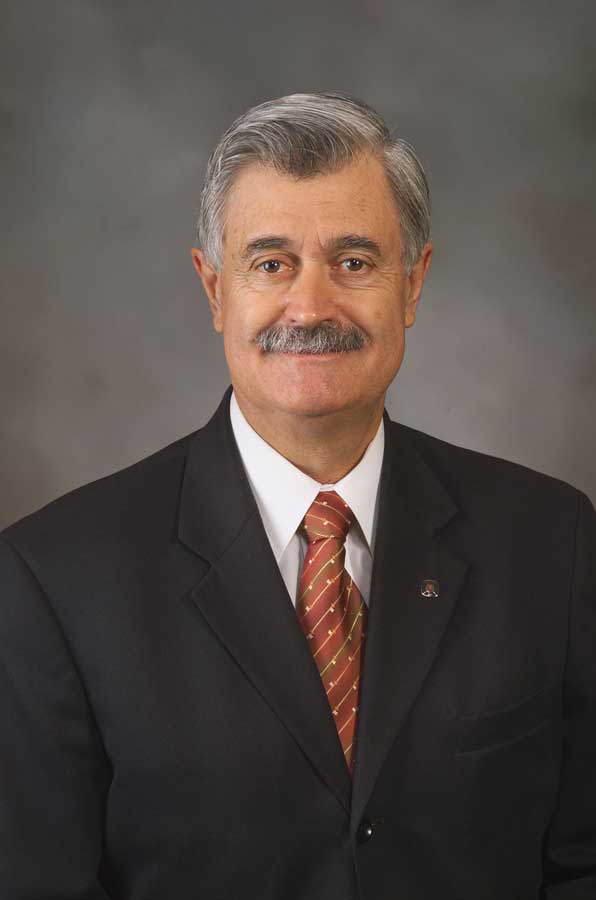Dr. Gerhardt Schurig to step down as dean of the Virginia-Maryland Regional College of Veterinary Medicine

Dr. Gerhardt G. Schurig, dean of the Virginia-Maryland Regional College of Veterinary Medicine, will be stepping down from his position during the summer of 2013.
Appointed as the college’s third dean in 2004, Schurig first joined the veterinary college faculty in 1978. A professor and veterinary immunologist, he is considered one of the world’s leading brucellosis researchers and is internationally renowned for his work in developing vaccines against bovine brucellosis, a zoonotic disease that causes reproductive problems in cattle and undulant fever in humans.
“Under Dr. Schurig’s leadership, the college has grown in very positive ways,” said Senior Vice President and Provost Mark McNamee. “World-class research programs, a top-notch teaching hospital, and a cadre of distinguished faculty and clinicians are key pieces of the legacy of his leadership, and he leaves the college well-poised for continued growth and impact. He believes now is the right time for a transition and I respect his decision. He has devoted his academic career to Virginia Tech.”
Before serving as dean, he served as the college's associate dean for research and graduate studies, as director of Virginia Tech's Institute for Biomedical and Public Health Sciences, and as a senior researcher and former director of the Center for Molecular Medicine and Infectious Diseases. During his seven-year tenure as head of that center, it established itself as a major research and development center focused on creating vaccines and improved diagnostic tests for several economically significant animal diseases.
A native of Santiago, Chile, Schurig earned his DVM degree in 1970 from the University of Chile. After earning master's degree and Ph.D. degrees in immunology from Cornell University, he spent two years working in the Department of Veterinary Science at the University of Wisconsin at Madison. He then joined the Virginia Tech faculty and began a research career that culminated with the invention of the RB-51 vaccine, the global "gold standard" in bovine brucellosis control that played a major role in the virtual eradication of the cattle disease in the United States.
Schurig is a member of numerous professional societies, including the American Association for the Advancement of Science, the American Association of Veterinary Immunologists, and the American Society for Microbiology. He served as 2011-12 president of the Association of American Veterinary Medical Colleges and was inducted into the prestigious Spanish Real Academia de Ciencias Veterinarias in 2008.
The 67-year-old has received several major teaching and research awards, including the Beecham Award for Research Excellence and the Distinguished Service to Agriculture Award from the Virginia Farm Bureau.
He has published more than 100 research articles in peer reviewed journals and has made more than 170 presentations at national and international conferences.
“I very much enjoyed my time as dean and would like to thank all faculty, staff, and fellow administrators for helping me in advancing the goals of the college,” said Schurig. “I realized I was approaching 10 years as dean and recognized that the college needed new ideas, approaches, and energy to continue on a path of growth and success.”
After stepping down, Schurig says he plans to return to his previous faculty home, the Department of Biomedical Sciences and Pathobiology, where he will teach courses in immunology and conduct research.
The Office of the Senior Vice President and Provost will begin its work to launch an international search for the next dean. Information on that process will be published in Virginia Tech News as it progresses.




